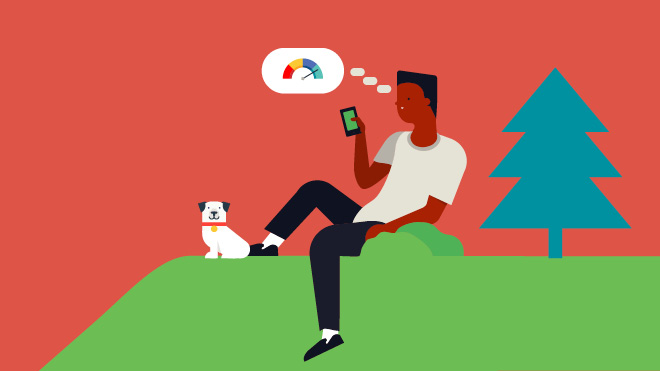
12 FAQs About Repaying Your Federal Student Loans
Student loan repayments are resuming. The road to repayment may be overwhelming, but options are out there. Here's what you need to know about paying back your student loans.
While many had hoped Biden's student loan forgiveness program would help reduce or eliminate student loan debt, June 2023's Supreme Court decision struck down the proposed plan.
So, your first student loan payment may be approaching fast. October 2023, in fact. You'll receive a bill from your lender with the amount due and the date due at least 21 days before your payment deadline.
Here are some helpful starting tips to navigate repayment—whether restarting or for the first time. It's critical to begin investigating your options now so your October budget doesn't take you by surprise.
Prepare for Your Student Loan Repayment
1. I have federal student loans with payments about to restart. When do they resume and what should I do?
Payments resume October 2023. If you've never made payments before or it's been a while since you reviewed your information, find your loan servicer. If you're restarting payments, your loans may have moved to a new servicer during the pause, and you may need to refamiliarize yourself with your loan situation.
Check the following for accuracy and upcoming budgeting:
- Your contact information.
- How much you owe in total.
- Your interest rate.
- Your monthly payment.
- The payment plan you're in now.
- Whether you're enrolled in autopay.
To take advantage of autopay discounts, link your bank account to your student loan account. However, ensure your bank account has the funds necessary to make your monthly payment before it's withdrawn.
2. If I made payments during the pause, how will they be applied to my loan balance and interest?
During the loan pause, you weren't required to make payments. But if you did so, congratulations—your payments were applied to your principal, which reduced the amount you need to repay over time. If you check your loan balance at the Federal Student Aid site, you should be able to see how your past payments were applied.Remember, now that interest has restarted, your payments will go toward paying down the principal and interest.
Student Loan Repayment Plans
3. What repayment plans are available for my federal student loans?
There are eight different repayment plans available for federal student loans. Choosing the right loan repayment plan depends on your loan type, income, amount you've borrowed, preference for repayment timelines and other factors. Speak with your servicer to determine the best repayment plan for your situation.
The eight repayment plans are:
- Standard Repayment Plan.
- Graduated Repayment Plan.
- Extended Repayment Plan.
- Saving on a Valuable Education (SAVE) Plan—formerly the REPAYE Plan.
- Pay As You Earn Repayment Plan (PAYE).
- Income-Based Repayment Plan (IBR).
- Income-Contingent Repayment Plan (ICR).
- Income-Sensitive Repayment Plan.
4. Are any new repayment plans available that are better for my financial situation?
It's always possible a different repayment plan could be a better fit. The Saving on a Valuable Education (SAVE) plan is a new repayment plan that could be a good fit for eligible borrowers. With a SAVE plan, your monthly payments could be lower, and you may qualify for loan forgiveness earlier. You'll need to speak with your servicer for more details, as you may also pay more over time and might need to pay income taxes on any forgiven amounts.
5. If I'm enrolled in an income-driven repayment plan, must I re-certify my income before payments resume?
If you're in one of the four income-driven repayment plans, you must typically re-certify your income and family size yearly. If you haven't yet been asked to re-certify, it's wise to check in with your servicer to find out whether you should do so, particularly if your financial situation has changed in the past few years.
6. What is the difference between student loan consolidation and refinance?
The government's Direct Loan Consolidation program combines one or more federal student loans into one larger loan you repay. You can't consolidate private loans. Private lenders offer student loan refinance, which can combine federal and private student loans.
Both programs can streamline the payment process by reducing the number of servicers and payments you need to manage, and a fixed interest rate buffers against unpredictable rate changes.
However, not all lender refinancing offers fixed-rate loans, and federal loan consolidation retains federal loan protections. If you're approved for private loan refinancing, you may be able to lower your rate, extend your repayment, release a cosigner, and other benefits—which differ by lender. However, you may lose specific repayment plan options and other federal loan protections and benefits.Get a closer look at the differences, benefits and drawbacks at the Consumer Financial Protection Bureau site.
7. Does BECU offer student loan refinance?
BECU, in partnership with LendKey, offers student loan refinancing for students and parents. Borrowers who qualify for refinancing can benefit from the following, among other benefits:
- A competitive fixed interest rate.
- Release of cosigner after meeting certain conditions.
- Interest rate reduction with automatic payment.
As a result, student loans (both federal and private) refinanced into a single BECU student loan refinance may have a lower interest rate and monthly payment than your current loans.
8. I have a combination of federal and private student loans. How can I manage payments?
First, understand which of your loans are private versus federal. Lenders and servicers typically specify federal and private loans. Then, review your options. You could continue making payments to the different lenders, or you may be able to refinance your loans into one loan. BECU's student loan partner, LendKey, can assist in reviewing your options.
Planning for Your Future
9. What options do I have if I can't make my student loan payments?
If you're struggling to pay your student loan, contact your servicer. Your servicer helps you find the right repayment plan. You might even qualify for a deferment (temporary repayment pause) or forbearance (stop or reduce payments for up to 12 months). However, interest may continue to accrue on loans in deferment or forbearance, so speak with your servicer about your options.
Remember, not paying your student loans can lead to drastic consequences. If your federal student loan is delinquent for 90 days or more, your loan servicer will generally report that delinquency to the three major national credit bureaus.
After 270 days, your delinquent loan goes into default. For private student loans, your late payment can be reported after 30 days past due, and default happens sooner. Delinquency and default affect your credit score, making getting credit from other lenders harder. Default can also reduce access to more student aid and could lead to the government garnishing your tax refund, paycheck or social security benefits.
10. What are the implications for my credit score when repayments resume?
Typically, payments toward your federal and private student loans show up on your credit history. On-time payments can help raise your credit score. Late or missed payments can lower your credit score.
For federal student loans only, servicers are temporarily not reporting late, partial or missed payments to credit bureaus for up to 12 months. This is called the "on-ramp transition period." In addition, borrowers won't enter default or get referred to collection agencies for late, missed, or partial payments during the 12 months. However, interest will still grow on your loans, and there may be other consequences. Make sure you understand the fine print before missing a payment.
If you have private student loans, the lenders will continue reporting as in the past. But if you make regular, on-time, in-full student loan payments, your score should improve, whether you're repaying private or federal loans.
11. Are resources or financial counseling services available to help me manage my budget regarding repayment?
Your loan servicer can best answer any questions about your loans and repayment plans. If the payment amount is acceptable, but you want to understand how your loan repayment amount fits into your larger budget, BECU's GreenPath credit and debt counseling and Financial Health Check can help. BECU's free seminars and workshops can help boost knowledge and confidence in your financial journey.
12. How can I stay informed about any future changes or potential benefits related to student loan policies?
Review the Department of Education's Federal Student Aid site for the most up-to-date information and to stay informed on future changes or benefits.


